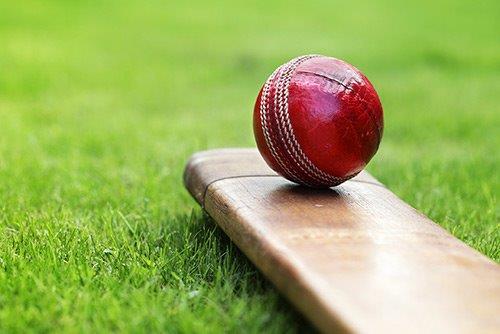Hall of fame: Dickie Bird
Harold Dennis Bird, aka ‘Dickie’, was born in April 1933 in Barnsley, the son of a miner, James Harold.
 Given the nickname Dickie at school, by the time he’d reached 15 and had left Raley
Secondary Modern, his focus was on making a career in sport. He worked for a time
in a coal mine, until deciding it wasn’t for him. When a knee injury put a stop to
hopes of a career in football, he turned his attention to cricket.
Given the nickname Dickie at school, by the time he’d reached 15 and had left Raley
Secondary Modern, his focus was on making a career in sport. He worked for a time
in a coal mine, until deciding it wasn’t for him. When a knee injury put a stop to
hopes of a career in football, he turned his attention to cricket.
Bird played cricket for Barnsley Cricket Club alongside Geoffrey Boycott (OBE, Gazette supplement 48212) and lifelong friend, Michael Parkinson (KBE, Gazette supplement 58557), when they were in their mid-teens, with shared idols Sir Leonard Hutton (Gazette supplement 40787) and Johnny Wardle. Bird signed for his home county of Yorkshire (YCCC) in 1956, age 19, with what was then a gentleman’s agreement of a handshake. He also played for Leicestershire in the County Championship between 1959 and 1964, after which he spent some time coaching, before turning his attention to umpiring.
Bird officiated his first county game in 1970, taking on a test match just 3 years later. A reputation for stopping play in response to the vagaries of British weather, many remember Bird during his 23 years as an umpire fiddling with his light meter, or worrying about drizzle. But his sense of humour and down-to-earth nature made him a favourite with the crowds.
The statistics go a long way to revealing why Bird is probably the most famous umpire in the history of the game. He umpired 66 Test matches (54 in England), 92 one day internationals, 3 world cup finals, the Queen's silver jubilee test between England and Australia in 1977, the centenary test between England and Australia in 1980, and the MCC's bicentennial Test between England and the rest of the world in 1987.
Beyond the vital statistics, his engaging, passionate and unconventional approach has cemented his place as a national treasure. His autobiography is the bestselling sports book of all time.
Prone to nerves, a little eccentric, cautious and shy by nature, and with a tendency to turn up early to most things - 8.30am when due to meet the Queen at a Buckingham Palace lunch, and 5am on some Test match days - Bird earned much respect from players. At the beginning of his 66th and final Test in 1996, a world record at the time, the competing teams, India and England, formed a guard of honour as he came out. He also received a standing ovation from the crowd.
He received an MBE in 1986 (Gazette issue 50551) and was later awarded an OBE in 2012 (Gazette supplement 60009) for services to cricket and to charity. "It's a marvellous and wonderful honour and I never expected it, really."
Bird has never forgotten his roots, commenting that, "I was born into a miner's family in the heart of Yorkshire and unfortunately we didn't have that much money between us". He is said to never travel without a photo of his parents with him. He set up the Dickie Bird Foundation with the aim to help financially disadvantaged young people to participate in sport and to help them to fulfil their ambitions.
A 6 foot bronze statue of Bird stands in the centre of Barnsley near where he was born, and where he still lives, occasionally attending home matches at both YCCC and Barnsley FC.
